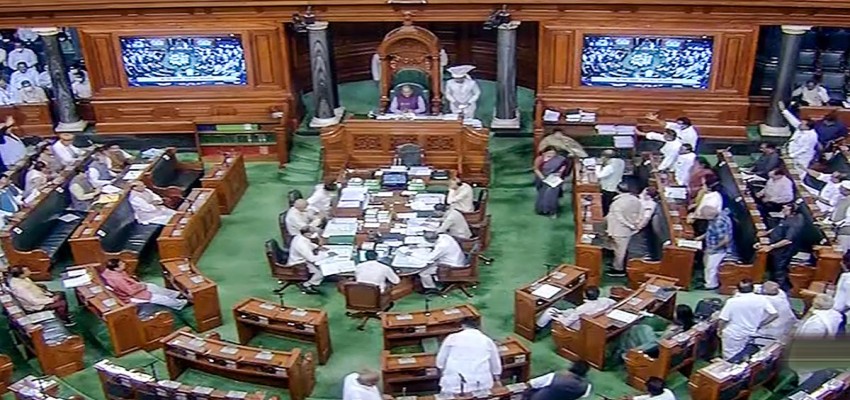
Centre tables bill in Lok Sabha for cooperative sector reforms
The bill says that “the aggregate value of the paid-up capital and provision of reserves along with liquidity norms” of the bodies might be laid down by the Reserve Bank from time to time
New Delhi Amendments to the Multi-State Cooperative Societies law were introduced in the Lok Sabha on Wednesday, aiming to bring in a prudent financial regime, greater accountability and oversight while restricting family fiefdoms in the country’s nearly 800,000 registered cooperative societies, mostly in the rural sector.
The Multi-State Cooperative Societies (Amendment) Bill, tabled in the Lok Sabha, requires all multi-state cooperative bodies to maintain “liquidity, exposure, prudential and other parameters” as per norms, failing which the central registrar can take action. The new bill, overhauling the 1984 legislation, says, “the aggregate value of the paid-up capital and provision of reserves along with liquidity norms” of the bodies might be laid down by the Reserve Bank from time to time.
The bill also aims to curb the influence of family members in a society, keeping in mind that a large number of such bodies run in a feudal manner. The bill suggests, “No director of a multi-State co-operative society shall, as a director, be present in the discussion of, or vote on, any contract or arrangement entered into, or to be entered into, by or on behalf of such society, if he or his relative is directly or indirectly concerned or interested in such contract or arrangement”. It also bars relatives of any sitting directors of the multi-State co-operative society shall be recruited as employee including the Chief Executive of that society.”
The Multi-State Cooperative Societies (Amendment) Bill, tabled in the Lok Sabha, requires all multi-state cooperative bodies to maintain “liquidity, exposure, prudential and other parameters” as per norms, failing which the central registrar can take action.
The 39-page bill focuses on fixing the accounts on priority. The legislation also requires multi-state cooperative societies registered before the commencement of the new law to “meet such norms within a period of five years from the date of commencement of the said Act”.
The amendments impose a ceiling on the size of the board while introducing diversity and professionalism. It says, “The board shall consist of such number of directors not exceeding twenty-one, out of which one Member shall be Scheduled Caste or Scheduled Tribe and two shall be women” and that the board may co-opt as members of the board having experience in the fields of banking, management, cooperative management and finance.
The proposed law also envisages setting up of an election authority to be led by someone who has held the post of additional secretary to the Government of India, appointment of an independent auditor picked up by central authorities, and introduces a cooling-off period of two years for a former chairperson, vice-chairperson or members of the election authority to get employment in any cooperative society.
Many opposition lawmakers objected to the introduction of the bill. While RSP member NK Premachandran questioned if the Union government is eligible to bring such a bill, Congress leader Manish Tewari claimed the bill violated a few constitutional provisions. “The bill now prohibits the redemption of shares of multi-state cooperative societies without the approval of the government. This strikes at the very heart of the principle of autonomous functioning of cooperative societies,” he said.
The Congress’s floor leader Adhir Ranjan Chowdhury alleged the central government was “encroaching upon the territory of the state government” and opposed the clause that profit-making cooperatives have to pay ₹1 crore or 1% of their profit to set up a Cooperative Rehabilitation and Reconstruction Fund.
Chowdhury alleged that “the central government has empowered itself with vast powers under the present bill. This may lead to concentration of power and may also create a potential for misuse.”
Professor HK Mishra of IRMA said, “The Bill is in the right direction as it tries to ensure good governance in the multi-state cooperative bodies. The three pillars of the bill are the creation of an ombudsman, the election framework and the establishment of the rehabilitation body. We need to remember that while the cooperative bodies come under the state governments, the multi-state bodies are within the sole purview of the Central government. This bill can help multi-state cooperative bodies function better.”
Courtesy: Hindutan Times

